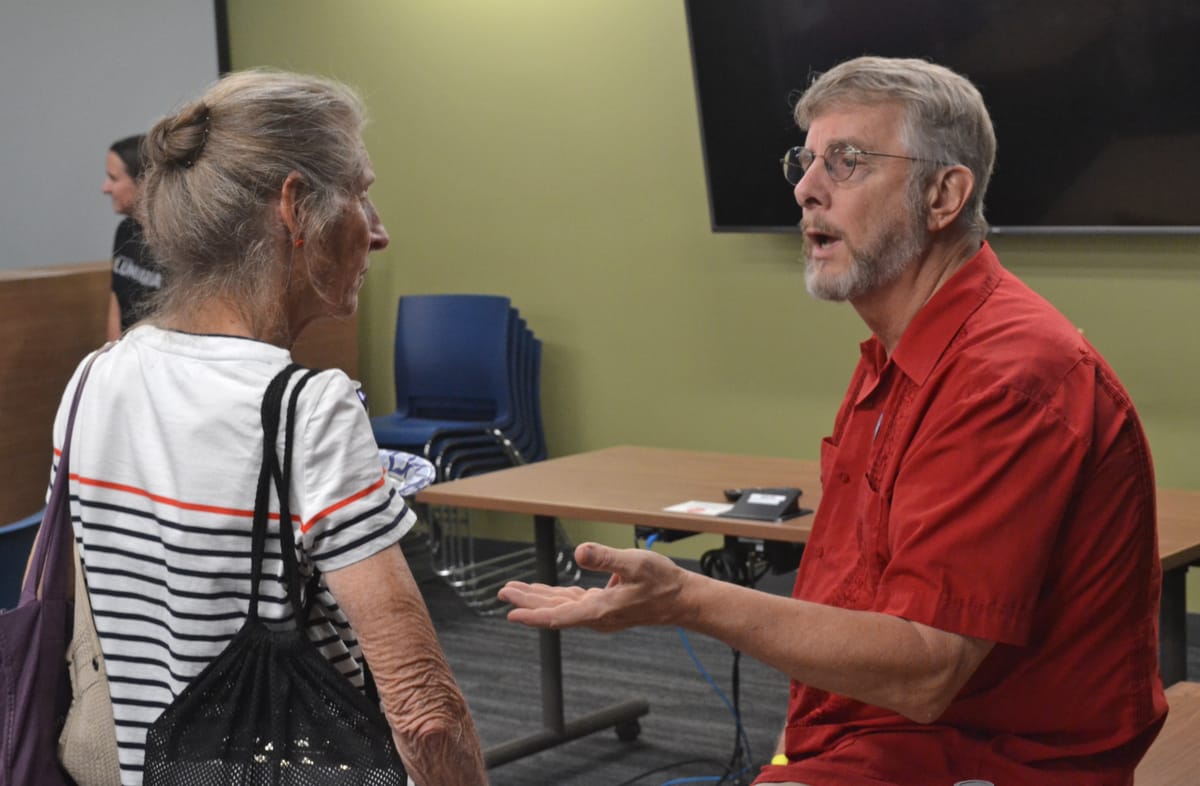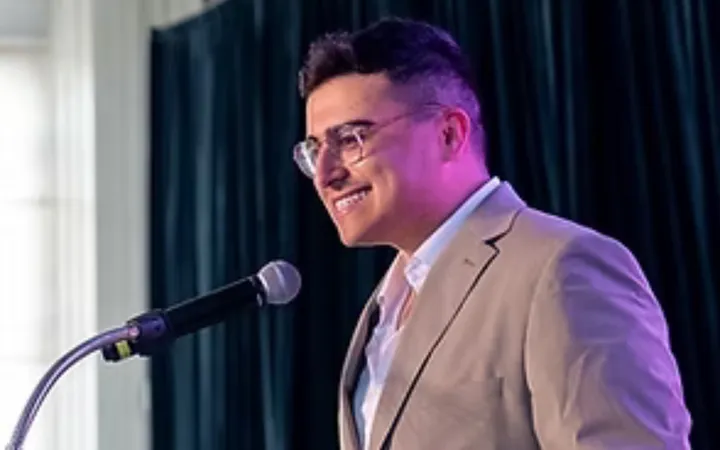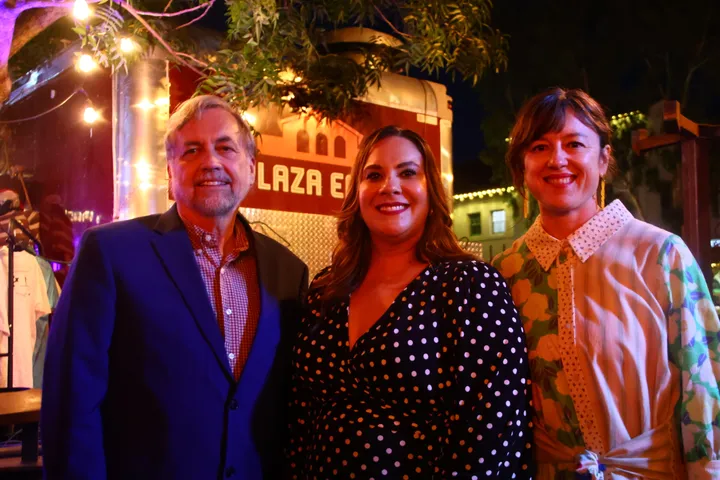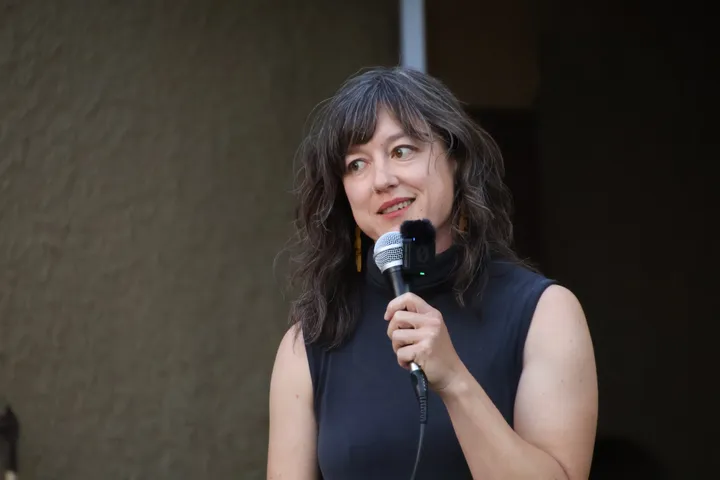Sinex campaigns in Ward 6 on fairness, election reform
James Sinex is running for Tucson’s Ward 6 City Council seat with a focus on fairness, election reform and innovative ideas like tax-free solar power.

James Sinex, a Tucson native with decades of political experience and a background in education and the military, is running for the Ward 6 City Council seat on a platform focused on fairness, election reform and new ideas like tax-free solar power.
He’s urging voters to think beyond party lines and make their voices truly count.
“There’s nothing really driving us, so what drives me is I believe in people,” he told Tucson Spotlight. “I believe that people can make a decision.”
Sinex, a Democrat, was raised in Tucson before relocating to Fort Huachuca to work with Army computer systems. He also spent time teaching biology at Tucson High School. He said part of his desire to run is to help build a better Democratic Party.
“If we want a fairer society, then we need to have fairness for everyone,” he said.
Sinex is facing democratic challengers Miranda Schubert and Leighton Rockafellow Jr. in August’s primary election. The winner will take on Republican Jay Tolkoff in November.
Sinex is strongly against at-large elections, in which voters elect officials to represent the entire city instead of individual wards. He also supports getting rid of primary elections, pointing out that a vote in a primary — where his influence is one in 40,000 — is much weaker compared to the general election, where his vote counts as one in 305,000.
“The math just isn’t mathing,” he said.
He said it would be better if elections produced majority winners. Sinex noted that a candidate can secure the Ward 6 Democratic nomination with just over 33% of the vote, and the same applies to Ward 5.
“The way it runs right now is automatically going to disenfranchise 250,000 Tucson voters,” Sinex said. “It would be nice, don’t you think, if we could just all vote in November just once.”
In Tucson, the mayor and council members for Wards 1, 2 and 4 are elected in the same year, while voters in Wards 3, 5 and 6 elect their council members in a different year. Sinex said in a letter published on his website that splitting up the races and conducting some elections during off-years can create voter fatigue and lead to lower turnout.
“At-large elections are designed to discriminate and I believe we here in Tucson can do better,” he said on his campaign website.
If the city were to switch to ranked-choice voting or an instant runoff system, it would eliminate the need for a primary, Sinex said, adding that the current system stems from Jim Crow-era laws, or more specifically, bigotry.
Sinex said that when issues like anti-Semitism, misogyny and homophobia are discussed collectively, many people can relate to them, forming a shared majority in elections.
“That’s a commonality. There’s a common reason to fight bigotry and it doesn’t matter who you’re looking at,” he said.
He also said that at-large elections tend to encourage groupthink, making it more difficult for fresh ideas to emerge.
“I don’t know anybody who looks at Tucson and can honestly say that we don’t need the ideas,” he said.

Sinex describes himself as a free-thinking liberal with fiscally conservative views. For example, he supports a tax-free solar power system.
“What if we could turn that electric bill into a resource that was useful by the people through their government?” he asked.
His theory is that the money saved by using solar panels could be put in a “lock box” and then split into two. Half would go toward growing the project, and the other half would go toward maintaining the system, helping it remain tax-free.
He referred to a common business idiom, “Good, Fast, Cheap… You only get two,” calling his idea good and cheap. It would also capitalize on one of Tucson’s greatest resources: sunlight.
“It’s not an additional cost,” he said.
Sinex has worked on political campaigns for 20 years and says he wants to be on the right side of history. He’s not trying to win over voters, he says, and hasn’t raised any money or put up yard signs.
He’s just hoping for people to make an informed decision and to vote.
“I want everyone to vote their conscience in an important manner. So look at all three of us before you vote, but just vote,” he said.
Voters will have a chance to talk to candidates at a candidate meet-and-greet tonight, co-hosted by Tucson Spotlight and the Arizona Luminaria. Find details and RSVP here.
Arilynn Hyatt is a journalism major at the University of Arizona and Tucson Spotlight intern. Contact her at arilynndhyatt@arizona.edu.
Tucson Spotlight is a community-based newsroom that provides paid opportunities for students and rising journalists in Southern Arizona. Please consider supporting our work with a tax-deductible donation.



